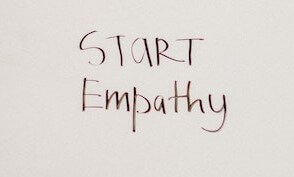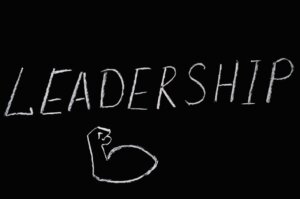A guest blog from Carter McNamara.
What Is Empathy? Why Is It So Important?
Empathy is the ability to accurately put yourself “in someone else’s shoes” – to understand their situation, perceptions and feelings from their point of view – and to be able to communicate that understanding back to the other person. Empathy is a critical skill for you to have as a coach, trainer or consultant. It contributes toward accurate understanding of your clients, their perceptions and concerns. It also enhances your communication skills because you can sense what your client wants to know and if they are getting it from you or not. Ideally, your client can learn skills in empathy from you, thereby helping them to become more effective leaders, managers and supervisors.
Note that empathy is sometimes confused with sympathy. Sympathy involves actually being affected by the other person’s perceptions, opinions and feelings. For example, if the client is frustrated and sad, the sympathetic consultant would experience the same emotions, resulting in the consultant many times struggling with the same issues as the client. Thus, sympathy can actually get in the way of effective consulting.
Guidelines to Develop Empathy
1. Experience the major differences among people.
One of the best examples of strong skills in empathy is people who have traveled or worked in multicultural environments. They have learned that the way they see and experience things is often different from others. People with little or no skills in empathy might have an intellectual awareness of these differences. However, until they actually experience these differences, their skills in empathy will probably remain quite limited.
2. Learn to identify your own feelings – develop some emotional intelligence.
Many of us are so “processed” and “sophisticated” about feelings that we cannot readily identify them in ourselves, much less in others. For example, we might perceive thoughts to be the same as feelings. So when someone asks you how you feel about a project, you might respond, “I think we have a lot to do.” Or, we might not distinguish between seemingly related emotions, for example, between frustration and irritability or between happiness and excitement.
See the Free Management Library for resources about Emotional Intelligence.
3. Regularly ask clients for their perspectives and/or feelings regarding a situation.
Silently compare their responses to what you might have thought they would be. This approach not only helps you to sharpen your own empathic skills, but also helps you to learn more about your client.
For more resources, see the Library topic Personal and Professional Coaching.
————————————————————————-
Carter McNamara, MBA, PhD – Authenticity Consulting, LLC – 763-971-8890
Read my weekly blogs: Boards, Consulting and OD, Nonprofits and Strategic Planning.
 Sections of this topic
Sections of this topic
















